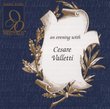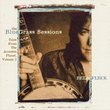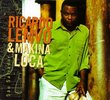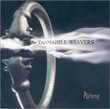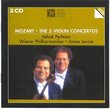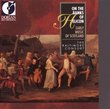| All Artists: John Shirley-Quirk, Claudio Monteverdi, Giovanni Gabrieli, Giovanni Battista Bassani, Giovanni Bassano, John Eliot Gardiner, James Bowman, Charles Brett, John Angelo Messana, The Philip Jones Brass Ensemble, Philip Jones Wind Ensemble, David Monrow Recorder Ensemble, Nicholas Kraemer, Monteverdi Choir and Orchestra, Monteverdi Orchestra, Malcolm Hicks, Alastair Ross, Jill Gomez, Felicity Palmer, Robert Tear Title: Monteverdi: Vespro della Beata Vergine 1610 Members Wishing: 0 Total Copies: 0 Label: Decca Release Date: 10/11/1994 Genres: Special Interest, Pop, Classical Styles: Vocal Pop, Opera & Classical Vocal, Historical Periods, Baroque (c.1600-1750) Number of Discs: 2 SwapaCD Credits: 2 UPC: 028944348224 |
Search - John Shirley-Quirk, Claudio Monteverdi, Giovanni Gabrieli :: Monteverdi: Vespro della Beata Vergine 1610
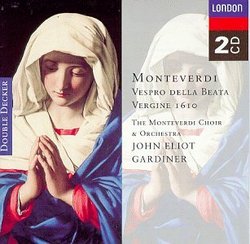 | John Shirley-Quirk, Claudio Monteverdi, Giovanni Gabrieli Monteverdi: Vespro della Beata Vergine 1610 Genres: Special Interest, Pop, Classical
One of the most grand and eloquent liturgical works ever written, Monteverdi's Vespers has enjoyed near-perpetual favor with performers and listeners since its composition in 1610. It may have been written for use as an ... more » |
Larger Image |
CD DetailsSynopsis
Amazon.com One of the most grand and eloquent liturgical works ever written, Monteverdi's Vespers has enjoyed near-perpetual favor with performers and listeners since its composition in 1610. It may have been written for use as an "audition" piece for the position of maestro di cappella at the famed St. Mark's cathedral in Venice. Whatever its motivation, this is a most ambitious and stylistically fascinating compendium that sets out the eight chants of the Mass Ordinary, interspersed with four motets and an instrumental piece. The 90- minute work includes soloists, chorus, and orchestra. Not until Bach would there be a religious work on this scale. Gardiner and his Monteverdi Choir adopt a decidedly "un-period" sound on this mid-'70s recording, with free vocal vibrato and a mix of modern and period instruments. This two-for-one disc set also includes motets by Monteverdi, Gabrieli, and Bassani. --David Vernier Similar CDsSimilarly Requested CDs
|
CD ReviewsA bargain 12/24/1998 (4 out of 5 stars) "I'd give it one more than my Texan friend above, but not five purely because I think that Gardiner's later version for Archiv, recorded in San Marco, Venice, knocks spots off every other version I've ever heard, and that's a lot. This is a modern instrument version, but it captures the magic of the work, a spectacular tour-de-force which bridges between the Renaissance and Baroque musical worlds. Its main glory is the choral singing which, with the blaze of Philip Jones's brass in the big numbers, is goosebump-raising. If you like your Vespers magnificent rather than devotional, this version is unmissable at this price." Stay Away! Ryan Kouroukis | Toronto, Ontario Canada | 01/01/2005 (2 out of 5 stars) "This recording only conveys the "loud drama" of Monteverdi's Vespers, which it is soley not. There is not one ounce of spirituality in this recording whatsoever! Not only that but, the recording is marked with blocky chunks which are heavily noticible (as cuts)...there is no sense of fluidity or flow at all. Also, there is no libretto included. I wouldn't recommend this set of the Vespers to anyone starting out and wanting to understand them. I would recommend Gardiner's second recording in it's stead as it is imbued with spiritual elements. I've heard that Andrew Parrot's version is the "one" to get, though I've not heard it yet. " Stirring Ryan Kouroukis | 10/08/2001 (5 out of 5 stars) "Vespro della beata vergine, a very stirring composition, was written by Monteverdi and performed in St.Marks Cathedral, Venice in the late 16th century. Claudio Monteverdi had just crossed over into Chorale, mass and religious music to try to win over the favors of the Pope. His opera works, as stunning as they were, were not paying his bills and he had a family to support. Thus his switch to sacred music may have had political dynamics. It is important to keep in mind that this was Monteverdi's first serious full-length religious-based compositional endeavour after his opera works (such as L'Orfeo), and therefore carries with it some of the more dramatic arias and robust tenor voices inherent to opera. In this particular SV206 recording, that influence is very strong, and while it might take a bit of the subtlety out of the music, it adds an incredible amount of fortitude, vitality, and resolve. But don't be mistaken, this recording still has the subtle nuances crucial to the works. For a truly supple example of the composition, check out the version by Andrew Parrott and the Taverner Consort. It's quite impressive.
On this SV206 issue, overall the strong as well as the precious operatic voices ring through and evoke that first golden morning 500 yeras ago in St. Marks cathedral, Venice, when the great composer conducted a vast chorus and orchestra before the highest of Italian religious and secular powers, trying to prove to them that he had full mastery of sacred music. This recording evokes an era of glorious faith, but also a time when minds were surrounded by the darkness of unkown horizons and a hierarchological universe. ...Beyond the Venice quais, with their great merchant sailing vessels unloading treasures and preparing for new voyages, the horizons of the world were new and enigmatic, and as this chorus floated out from the cathedral square, the voyagers carried it in their hearts and minds as the promise of an ordered universe." |

 Track Listings (12) - Disc #1
Track Listings (12) - Disc #1